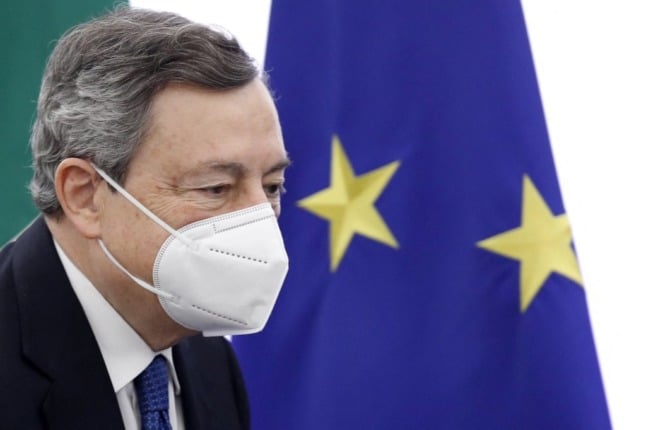Right-wing parties have seized on the incident as proof that groups like Isis are taking advantage of Europe's migration crisis, in which thousands of refugees are making the risky Mediterranean crossing to flee war and poverty.
Nato's chief Jens Stoltenberg also warned this week that battle-hardened “foreign fighters” who have joined jihadist outfits in Iraq and Syria could smuggle themselves into Europe by hiding on asylum-seeker vessels.
But analysts say extremist groups are more interested in holding territory in the Middle East than risking their men in flimsy dinghies, especially when they can rely on radicalized Europeans to do the work for them in their own countries, they say.
“To send their fighters in migrant boats that are just going to sink is not very smart,” Christian Nellemann, of the Norwegian Centre for Global Analysis told AFP.
“Putting high value fighters on a migrant boat that's likely going to sink, so they might die, or being picked up by a naval vessel where they would get interrogated, is not a very effective way of sending fighters to Europe.”
'The threat exists'
Italy on Wednesday seized a Moroccan man suspected of involvement in a deadly attack in March on a Tunis museum in which 21 foreign tourists were killed, three months after he arrived on a boat full of refugees.
Marc Pierini, a researcher at the Carnegie Europe institute and former EU ambassador to Turkey and Libya said that “the threat exists, there has at least been a threat of this kind by Islamic State, and there is the recent arrest in Italy.”
“But still this is not the biggest terrorist threat, as the terrorist attacks in 2014 and 2015 in Europe were carried out by European citizens. It is this method that is the real game-changer,” he added.
Recent attacks like the Charlie Hebdo attack in Paris in January and the attack on a Jewish synagogue in Copenhagen the following month were all carried out by Europeans on home turf, added Charlie Winter, a researcher at the London-based think-tank Quilliam.
“In terms of the whole desire of Islamic State to carry out terrorist operations abroad, it's proven it doesn't need to send people abroad,” he told AFP.
“Islamic State's priority right now, above all else, is consolidation in the areas that it has a presence in.”
But he said he could “very much imagine” that IS was involved in the people-smuggling racket that Europe is trying to root out, even if it is not sending over militants.
'No case so far'
The arrest has added fuel to an already blazing debate in Europe about how to handle the human flood from North Africa after more than 1,800 people died attempting the crossing.
The EU last week unveiled a migration plan, including a proposed naval mission to target people smugglers, but anti-immigration parties say it fails to secure Europe's borders.
Nigel Farage, leader of the eurosceptic UK Independence Party, said on Wednesday there was “a real genuine threat of Isis using this policy to infiltrate our countries”.
Italy's anti-immigration Northern League party meanwhile called for the Schengen agreement allowing free movement between most continental European states to be suspended.
The European Commission, the executive body of the 28-nation EU, played down the risk of militants hiding on migrant boats, saying that “asylum seekers and terrorists must not be placed in the same category.”
A spokeswoman told AFP the Commission was “aware of the potential risk of terrorist infiltration amongst migrants crossing the Mediterranean. However, no such case has been confirmed so far.”
The issue distracted from Europe's ongoing failure to save lives in the Mediterranean, rights groups said.
“There are by all accounts hundreds of ISIS fighters who have passports, so why would they risk their lives trying to hide on a boat?” Andrew Stroehlein of Human Rights Watch told AFP.
“But it also deflects from the main issue – worrying about some far-fetched possibility that terrorists might be arriving by boat and something may happen in the future distracts from the fact that people are dying today.”



 Please whitelist us to continue reading.
Please whitelist us to continue reading.